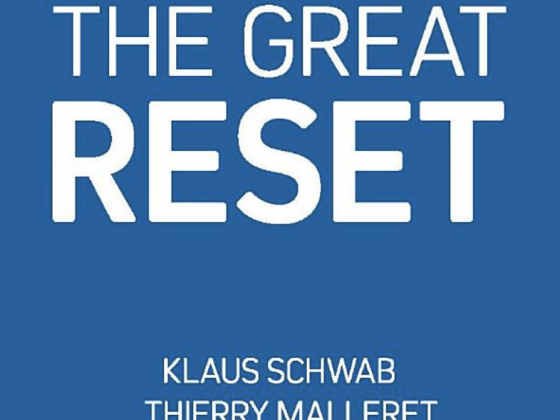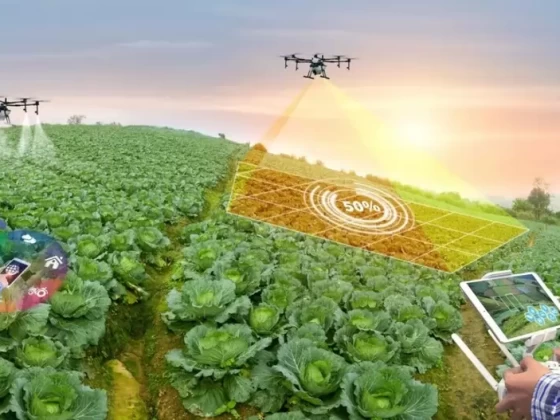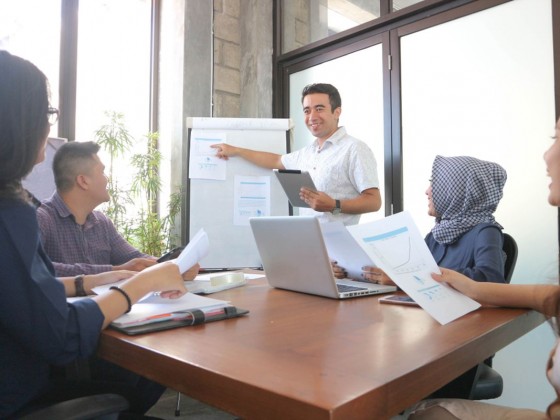by | LIZ ALEXANDER, PhD | Futurist, Author, Consultant, Speaker
Dr. Liz Alexander has been named one of the world’s top female futurists. She combines futures thinking with over 30 years’ communications expertise to produce publications that showcase the advice of fellow futurists on issues including the future of education, and how businesses can practically benefit from working with the futures community.
Dr. Liz is the author/co-author of 22 nonfiction books published worldwide, that have reached a million global readers, and has contributed to leading US technology magazine Fast Company, Psychology Today, and journals such as Knowledge Futures, and World Futures Review. She earned her PhD in Educational Psychology at The University of Texas at Austin.
Of the five programs I taught at The University of Texas at Austin’s Professional Development Center my favourite was always Crisis Communications. Each semester there were so many topical case studies to study, showing how leaders representing some of the biggest brand names in the world failed to anticipate and manage major crisis events. Few if any of these highly educated senior executives appeared to learn the lessons from businesses whose prior lack of anticipation had led to loss of profits and sometimes bankruptcy.
There is much we can learn from studying others’ failures. With the coronavirus pandemic it’s certainly instructive to review the differences between those countries that have successfully managed to “flatten the curve” (Malaysia, Germany, New Zealand, and South Korea for example), and those like the United States, Brazil, India, and Mexico where COVID19 continues to ravage their populations.
Since this is a magazine focused on foresight, I would first like to quash any notion that this pandemic was unpredictable or unforeseen; in no way should we think of it as a “Black Swan” event.
As the following examples demonstrate—and there are countless more—the world had been warned for years, by scientists and other experts, of the likelihood of a virulent new pandemic. These were not “weak signals”:
- In 2014, an SBS Insight episode that aired in Australia entitled Pandemic, featured World Health Organisation and other virology experts who predicted that the next pandemic event would likely “be a respiratory illness that originated from animals somewhere in Asia.”
- In March 2015, Bill Gates gave a TED talk entitled: The Next Outbreak? We’re Not Ready. To date it’s had almost 37 million views.
- For The Atlantic Magazine’s July/August 2018 issue, Ed Yong wrote the cover article entitled: The Next Plague is Coming. Is America Ready?
If foresight was not the problem—even if ignoring the warnings was—then perhaps the issue was the lack of relevant crisis preparedness plans? Unfortunately, even when there is a plan, this doesn’t necessarily mean it will be followed. The Obama White House, for example, left a 69-page crisis preparedness document entitled, Playbook for Early Response to High-Consequence Emerging Infectious Disease Threats and Biological Incidents. Replete with questions to ask, decisions to make and recommendations to follow, it was reportedly “scrapped” by the incoming Trump administration. With just 4.25 percent of the world’s population and a reputed 25 percent of global COVID19 deaths, we have seen how badly that has worked out for the United States of America.
Malaysia Boleh!
Thankfully, Malaysia is one of the world’s success stories. As Prime Minister Tan Sri Muhyiddin Yassin reported on 8th August, the country’s COVID19 recovery rate of 96.8 percent is one of the highest in the world. As of this writing (10th August, 2020), Malaysia has reported just over 9,000 cases and 125 deaths. This is a remarkable achievement, especially when you compare those figures to Peru, with a similarly sized population, that has seen close to half a million cases and over 21,000 deaths; or Sweden with only a third of Malaysia’s population whose disastrous “herd immunity” approach has resulted in more than 83,000 cases and 5,766 deaths.
Malaysia’s strategy has been similar to that of other standout countries including Canada, Germany, South Korea, Taiwan, and New Zealand, namely:
- Swift, decisive, and brave political action that included closing borders and non-essential businesses at the outset;
- Clearly communicated precautionary measures such as temperature taking, hand sanitising, social distancing, and using technology to facilitate contact tracing;
- A centralised response informed by science, not political ideology. The “face” of Malaysia’s COVID19 strategy has largely been that of endocrine surgeon, Datuk Seri Dr Noor Hisham bin Abdullah, who has provided vitally important consistent and transparent communication.
This last point is particularly important, since we can see from some of the worst examples in the world, namely the United States and Brazil, how political leaders who disdain science and refused to mandate the above-mentioned precautionary measures allowed their country’s case and death figures to soar.
So, is this a reason to ensure science education predominates in our schools and universities? My answer to that would be “Yes, but…”
Boost “Novel” Thinking
As much as they are to be admired, scientists and medical professionals are not infallible, and it is best not to be unrealistic in our expectations of them. As one commentator put it, science is “a process of being less and less wrong over time.” This is certainly the case when dealing with a novel coronavirus like COVID19, a new strain of pathogen for which we cannot rely on existing assumptions or biases. For example, the notion that COVID19 is a respiratory illness has changed. Not only has the virus caused strokes in some people, but also neurological symptoms and heart damage.
To be truly effective in these uncertain times, science education needs to teach students how to deal with dilemmas, in which they have to select from a number of alternative, possibly equally undesirable choices, rather than assume they will find the right answer, as most schooling tends to train them to do.
Another much-needed aspect of science education highlighted by the current pandemic is greater emphasis on the question: What if we’re wrong? This is an excellent habit to inculcate in all students, yet it’s one that scientists and other experts in Sweden and the UK apparently did not consider when adopting the classic epidemiological approach known as “herd immunity.” As a child growing up in the UK, if a classmate or friend contracted measles we were sent to play with them so we could catch it too; our parents did not expect us to die or suffer long-term health effects. But applying the same thinking to COVID19 presupposes that this coronavirus is no worse than the seasonal flu. According to one Swedish infectious disease expert, Sweden’s herd immunity strategy for COVID19 was supposed to result in fewer than 1,000 deaths and halt the spread of the disease in that country. As the above-mentioned figures indicate (5,766 deaths in Sweden, and counting), this expert was incorrect, not least for failing to ask himself: “What if I’m wrong?”
As University of Southern California Dornsife sociologist, Andrew Lakoff pointed out when discussing the dismal response to COVID19 by the United States, “We have to learn about the disease on the fly and figure out what works to mitigate it as quickly as possible.”
Are we are currently educating our young scientists and medical students to think “on the fly”?
Not Just S.T.E.M.
Another lesson we might take away from the current pandemic is to look more favourably on a liberal arts education. Anyone with a knowledge of global history would not go around saying that COVID19 was “unforeseen,” as the Pandemic Timeline on page # makes clear. Knowing that the “Russian Flu” in 1889 took just 70 days—a little over two months—to reach the United States, would provide a greater appreciation of how fast viruses can infect countries on the other side of the world, especially now we have air travel.
Foresight professionals rely on historical context to help identify trends, as well as discover events that happened once and could do so again. In his book, Learnings from the Long View, internationally renowned futurist Peter Schwartz wrote about a project his organisation undertook for the U.S. Department of Defense, which wanted to be better prepared to “think the unthinkable” regarding the implications of abrupt climate change. Schwartz’s team looked back 8,200 years to discover that there had already been a time in history when the northern hemisphere had cooled rapidly in under a decade, remained cool and dry for around a century, then warmed up again in less than a decade. To better prepare ourselves for what could happen, and enhance future decision making, we need to broadly educate individuals who have an appreciation of subjects beyond S.T.E.M: like world history, psychology—and communications.
Communication is Key
With two global champions already, FameLab Malaysia helps guide young scientists on how to explain difficultscientific concepts to lay people. I believe it is hugely important to teach such communication skills to a broader swathe of students, those who will become tomorrow’s politicians, business leaders, health professionals and, hopefully, well-informed, curious citizens.
As the best communicators know, we largely make decisions with our hearts, not our heads; only by touching our emotions do they inspire us to action. Consider how New Zealand rallied their citizens around the slogan: “Unite against COVID19,” and issued messages saying, “We are dependent on you,” and “Act as if you have COVID19. This will save lives,” rather than just the usual dry, factual information put out by other countries. The word pandemic has two Greek roots: pan meaning all, and demos meaning people. Unlike epidemics that affect only one region (the Great Plague of London in 1665, for example), a pandemic sweeps the globe. This means that all of us—all people—have a part to play. As Dr. Noor Hisham reminds us: “When the numbers go down, people let down their guard…when we succeed, it breeds complacency and that in turn can breed failure. It’s a vicious circle. We want to do prevention; now the onus is on the public to comply.” This is an important message for everyone to take on board. As recent events have shown, even New Zealand has suffered an uptick of new coronavirus cases, but this challenge can best be addressed with effective, emotion-focused communication that urges everyone in the country to “unite.”
As I pointed out earlier, when mentioning my Crisis Communications program, there are valuable lessons we can learn about how not to handle crisis events, such as observing the coronavirus debacle taking place in the USA and elsewhere. What this also teaches us, I hope, is to be proud and grateful for the kind of people Malaysians are, the majority of whom are largely complying with the SOPs, and what Malaysia as a coronavirus standout nation has so far achieved.










